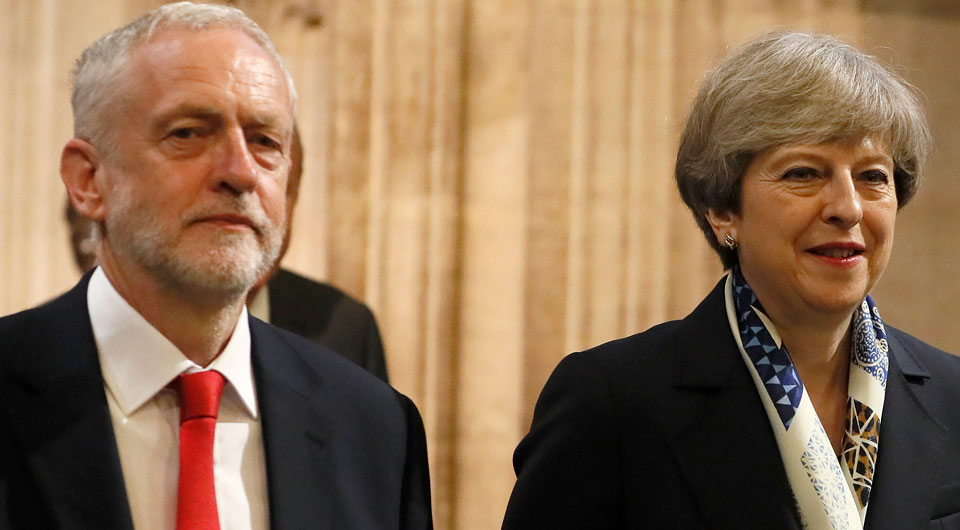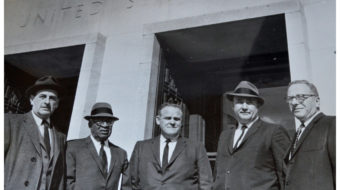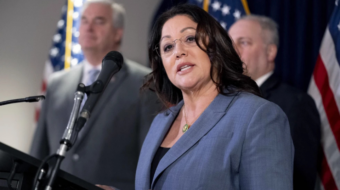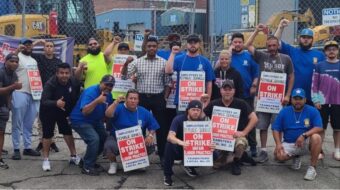
Every journey, filled with twists, sharp turns, peaks, and cliff edges, eventually comes to an end. How quickly depends on those involved. For Brexit, the end may come as early as Tuesday, following years of debate, virulent politics, and a divided public.
British Prime Minister Theresa May’s government recently drafted new clauses in the European Union withdrawal agreement, and after days of quiet optimism, May and Labour Party leader Jeremy Corbyn are both expected to sign off on a compromise deal.
If they fail to agree, it increases the possibility of a second Brexit referendum or emergency general election which could see a hardcore Brexiter installed as prime minister, pushing for a no-deal divorce. And after last week’s election results—which saw the Conservative Party lose 1,334 council seats, Labour lose 82, and the anti-immigrant UKIP gaining seats, neither Corbyn nor May can risk disagreement.
May’s proposal to Corbyn and Labour is an EU customs union arrangement lasting until 2022 when the U.K.’s next scheduled election takes place. Under the terms, Labour could then offer voters a full customs union, while a Conservative government, if able to secure another majority, could seek looser trade relationships, allowing Britain to secure individual trade agreements with EU member states.
Of course, Corbyn could still reject the proposed changes and push for a legally binding customs union. In that event, Labour and the Conservatives would move to secure several options to place before the House of Commons.
Corbyn is under pressure to make any deal with May conditional on it being put to voters in another referendum, a move supported by over 100 Labour lawmakers last week. The dilemma: Many Labour constituency strongholds voted Leave, and Corbyn is reluctant to alienate the party’s base.
The cross-party talks started by May last month came after the U.K. Parliament voted to reject her negotiated EU divorce deal a third time.
After her party’s resounding electoral defeat last week, writing in the Daily Mail Sunday, May said: “To the leader of the opposition, I say this: Let’s listen to what the voters said in the elections and put our differences aside for a moment. Let’s do a deal.
“We have to find a way to break the deadlock,” May wrote. “We will keep negotiating, and keep trying to find a way through. Because the real thing that matters now is delivering Brexit and moving on to all the other issues people care about.”
Corbyn commented on the election results, too, saying: “As well as local issues, voters have been talking to us about how the Tories’ shambolic handling of Brexit is overshadowing everything else. We will continue putting our case for an alternative deal to Parliament, and we will put that case to the European Union because Labour does not want to divide people on how they voted in 2016, we want to bring people together.”
Even if tomorrow brings a cross-party deal, it still needs to pass multiple votes in Parliament—requiring the stable support of most British lawmakers. It looks to be a tough sell, but anything is possible now.










